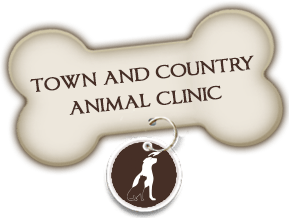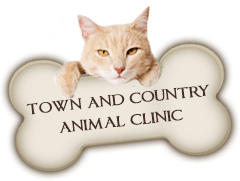Leptospirosis is a disease that both animals and humans can contract. It is caused by numerous different strains of the Leptospira bacteria. Dogs can become infected from surrounding wildlife or through areas contaminated by infected wildlife. This disease has been reoccurring in our area and the reason is believed to be caused by our increasing population migrating into the habitat of wild animals such as raccoons, skunks and rodents. Leptospirosis is a very difficult disease to diagnose as they early symptoms can mimic many flu-like conditions. Unfortunately, many diagnoses occur after the internal organs have been fatally damaged. In this blog we would like to discuss the causes, symptoms and how to prevent some of the strains of Leptospirosis to help keep your pets safe and healthy.
Causes
Leptospirosis is spread from wildlife such as raccoons, skunks and rodents. If the animal is infected the bacteria is present in their fluids so this disease can be transmitted through open wounds, urine and potentially their milk. It may seem far-fetched that your precious pet would have access to the fluids of a wild creature, but something as simple as a contaminated puddle, or contaminated grass in your yard can be enough to cause your best friend to contract this disease.
Symptoms
Early symptoms of this disease appear like many flu-like conditions. They include:
- Vomiting
- Lethargy
- Depression
- Diarrhea
- Fever
- Excessive thirst and urination
- Decreased appetite
The Leptospirosis bacteria enters your pet’s blood stream and then spreads throughout the entire body. It can affect the liver, kidneys, central nervous system, eyes and reproductive systems. More serious symptoms include:
- Bloody urine
- Blood in vomit or stool
- Bruising
- Jaundice (yellow coloring of the mucus membranes such as gums, eyes )
- Coughing
The extent to how the disease affects your dog’s organs depends on your dog’s immune system and his/her ability to fight off disease. If the disease spreads to the liver and/or kidneys it could be a fatal condition for your family friend.
The bacteria can remain in your pet’s urine, even after he/she has been treated. The bacteria can reproduce in the kidneys for up to one year after treatment. Since this is a disease that humans can contract, you must be very careful when cleaning your pet’s urine. We recommend you wear gloves and as a precaution you should notify your physician that your pet has contracted the Leptospirosis disease.
Diagnosis
After a thorough examination (including a detailed history about what your pet is exposed to) your veterinarian may recommend some blood tests to confirm that it is Leptospirosis affecting your pet and to rule out other potentially fatal conditions:
- Chemistry Profile to evaluate kidney, liver, pancreatic function as well as blood sugar levels.
- Complete Blood Count to rule out blood-related conditions
- Heartworm/Lyme in house test to rule out Lyme disease
- Fecal test to rule out intestinal parasites
- Electrolyte Count to ensure your pet has the correct balance of electrolytes
- Urinalysis to rule out urinary tract infection and to evaluate kidney function
- A sample may be sent to an outside lab to identify if the Leptospirosis bacteria antibodies are present
Once it has been determined that your pet does have the Leptospirosis bacteria present, treatment will depend on how sever the symptoms are. Your pet may require hospitalization with intravenous fluids along with other medications to treat the symptoms such as vomiting, diarrhea and to increase their appetite. There can be a good outcome if the disease is caught early enough to prevent damage to the internal organs.
Prevention
Much like influenza in humans there are numerous strains of the Leptospirosis bacteria. Previously the vaccine companies would include prevention to one strand in your dog’s annual combination vaccine. Since there are eight strains that can affect dogs, there is still a great potential that your companion can contract this disease. There now is a vaccine available that will protect your dog from four different strains of Leptospirosis so if you feel your pet is at risk , ask one of the Town and Country Animal Clinic staff members and we can set up an appointment to have your pet vaccinated against these four strains. In order to protect your dog, this vaccine requires an initial injection and then a follow up injection one month later. After that it becomes a yearly immunization to keep your pet safe.
At Town and Country Animal Clinic we want to ensure that you have a life time of happiness with your best friend. If you have any questions or concerns regarding Leptospirosis, please call us at (519) 250-0099.
www.TownandCountryAnimalClinic.ca






